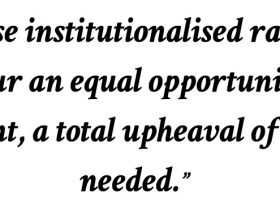In recent years, the spread of disinformation has required social media platforms to aggressively address the issues eschewing from disinformation. Disinformation is understood to be false information which is deliberately and often covertly spread to influence public opinion or obscure the truth. Google, Facebook, and Twitter are increasingly developing and implementing technological and policy-oriented safeguards against these challenges. Amid these attempts, whose success can yet be fully measured, one platform continues to provoke a specific set of challenges- WhatsApp.
The vulnerability of WhatsApp is unique. The platform, which was purchased by Facebook for $16 billion, is situated as not only a private messaging application but also has evolved into a social media platform.
This distinct position has been identified as “breeding ground” of disinformation, as WhatsApp messages are sent using end-to-end encryption- allowing only the sender and receiver to read the message.
In more developed countries, WhatsApp is used as primarily a personal messaging app, but in other lesser developed countries more people rely on it as a social media platform. Large-scale group messages, with hundreds of people, have been created. These groups are focused on various topics such as pop culture and entertainment, politics, and news media. They are common in countries such as Brazil, Venezuela, India, and Nigeria. A conventional thought process behind this practice is that messages and information sent in groups are not “contaminated” with government involvement or private and corporate agendas because of message encryption. It is seen as a safe haven in which to exchange information and opinions which are often accepted as factual because of the private means in which it is sent and received. It is important to note that in many of these situations, WhatsApp is not the source of disinformation, but instead an enabling platform for it to be perpetuated.
Pressure by governments, policy groups, and NGOs has recently called attention to the significant problems of disinformation which are bred in these group chats. Therefore, WhatsApp has limited membership in a single group to 256 users, however, this does not limit the number of groups which exist on a single topic- such as upcoming national elections.
WhatsApp contends that they can not approach their unique disinformation challenges in the same manner as Facebook and Twitter- as they can not and will not access the encrypted messages. Instead WhatsApp has offered options such as funding for initiatives which are attempting to comprehensively address the problem through other technological developments, academic research, and education.
In the recent year, this call for growth beyond the problems of disinformation has intensified. WhatsApp stands as merely one of the many social media platforms who is contending with a unique set of challenges, in an effort to innovate and move forward whilst effectively addressing the problems of disinformation.
art by Mafer Martinez





Was just browsing brizomagazine.com and was impressed the layout. Nicely design and great user experience. Just had to drop a message, have a great day! we7f8sd82